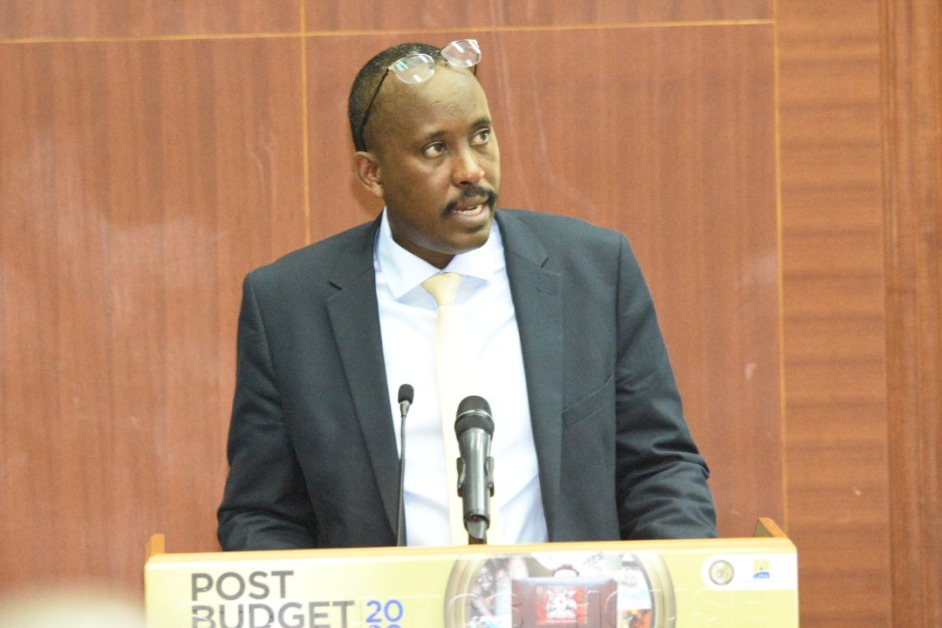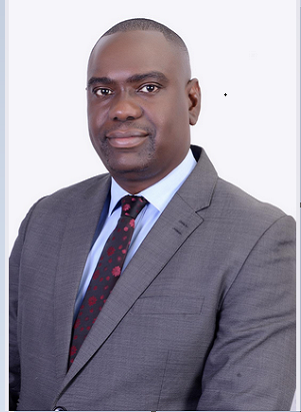URA Commissioner General, John Rujoki Musinguzi
The Commissioner General of Uganda Revenue Authority (URA), John Rujoki Musinguzi has revealed the Authority’s top priorities in boosting revenue collection.
Speaking on the 2nd day of the post budget reading conference on Wednesday, Musinguzi said URA has identified areas of reforms for better revenue collection.
“These are unprecedented times; the Corona pandemic has rapidly changed the way we operate, and we must adapt accordingly. We can no longer rely only on international trade and foreign assistance; we need to look within us as a country for sustenance,” Musinguzi said.
He added: “We are going to be more inward looking. We’re going to focus on domestic tax collection than pay all attention to international/foreign sources.”
He added that URA is going to rely more on data and improve the processes for managing data.
“We are going to clean it to be accurate and use scientific processes to point out areas of focus. We will not look on and be part of the causes of young businesses in our country to collapse because of over taxation,” he revealed to the applause of the attentive audience.
“We would be defeating our own purpose of existence if we cause small businesses to collapse because we need them to grow bigger with incomes which we can tax later,” he added.
High on the agenda of domestic revenue collection is tax education to improve tax compliance, Musinguzi revealed.
“We are prepared to undertake revenue collection with a lot of diligence but with sensitivity raised on this forum,” he said.
The URA boss added that the list of tax exempted items has been expanded for packing materials this Financial Year where a communique has been made.
“There is room for discussion and engagement with tax planners and makers to consider those items that are not on the list,” he said.
Business unusual
Musinguzi further revealed that this is not going to be business as usual.
“We are going to overhaul most of our processes so that going forward, we are prepared to deal with the new challenges,” he said.
He also noted that despite the recent shake-up in URA’s top management, he found a competent team of dedicated Ugandans.
“It’s not that the institution is corrupt. I found a very competent team. It’s just a few apples that spoil the reputation of many,” Musinguzi said.
He added: “There are a number of systematic measures URA is introducing to curb corruption within the Authority. Some of them include lifestyle audit where staff will have to account for what they earn and how they live.”
He said Government recently launched the Domestic Revenue Mobilization strategy which is expected to bring Uganda closer to attaining its target of 16% tax to GDP ratio.
“Our new corporate plan implementation hinges on key policy and planning framework including; the Uganda Vision 2040, The National Development Plan III, The Domestic Resource Mobilization Strategy (DRMS) to mention but a few,” he said, adding that they will enhance strategic partnerships.
“We shall improve and leverage on enhanced strategic partnerships with associations, Ministries, Departments and Agencies and civil society organisations that will most likely support as tax points for a number of taxpayers,” Musinguzi said, adding that URA will also enhance Trade facilitation.
“We shall adapt to the changing role of Customs globally which now includes a globally networked Customs, better coordinated border management, improved Customs trade partnerships like OSBP, SCT, ESW, among others,” he revealed.
URA will also bank on enhanced research.
“We shall identify emerging industry trends and implement appropriate innovative solutions, proactively identify user needs across different business areas and implement appropriate innovative solutions,” he said, adding: “We shall support in-depth research on tax administration models and tax policy proposals that shall inform new tax solutions to address Covid-19 , digital economy taxation among other new phenomena.”
He added that staff Integrity and capacity building remains a top priority.
“We are improving the organizational structure aligned with digital age, expanding organizational integrity and improving human resources management practices in order to effectively manage personnel and incentivize performance,” he said.
He revealed that feedback from clients through the most recent client satisfaction survey shows that there are taxpayer education gaps, little or no communication on taxpayer rights and obligations and that tax education takes place at URA premises.
“We must improve,” he said, adding: “As an organization that strives to better her capabilities to transform, transition and build a versatile culture for its future URA has started another season of growth with a new strategic direction.”
URA’s overarching strategy is to ‘Promote a taxpaying culture through engaged citizenry, productive partnerships, leveraging technology, data and innovative staff”.
Speaking at the same event, Patrick Mukiibi, Commissioner Domestic Taxes at URA said income tax rates for small business (presumptive) taxpayers have been lowered.
“Rates will still be based on turnover however taxpayers with no record shall pay a fixed cost while those with records shall pay tax a percentage of annual turnover,” Mukiibi said, adding: “A 10% withholding tax will be deducted from commission paid to insurance and advertising agents. It is also now mandatory for Withholding agents to file a return not later than the 15th day of the following month.”
He urged entrepreneurs to relate with tax man when starting up a business.
Mukiibi revealed that there are opportunities in the next financial year; Investment worth 150,000 dollars outside Kampala will qualify for the tax holiday of 10 years but on terms and conditions.
“The more we relate with the tax authority, the less likely that we shall have negative interactions. For the next year alone, URA will be tasked to contribute Shs19.8 trillion,” he said.






